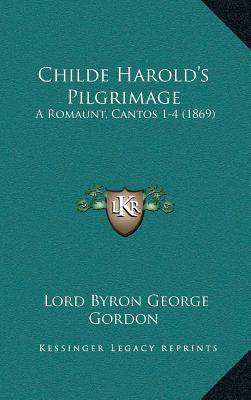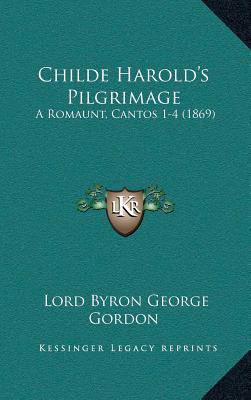
- Afhalen na 1 uur in een winkel met voorraad
- Gratis thuislevering in België vanaf € 30
- Ruim aanbod met 7 miljoen producten
- Afhalen na 1 uur in een winkel met voorraad
- Gratis thuislevering in België vanaf € 30
- Ruim aanbod met 7 miljoen producten
Zoeken
€ 66,45
+ 132 punten
Uitvoering
Omschrijving
Childe Harold's Pilgrimage: A Romaunt, Cantos 1-4 is a collection of four cantos written by the famous British poet, Lord Byron. The book was first published in 1812, and this edition was published in 1869. The poem follows the journey of the protagonist, Childe Harold, as he travels through various European countries, reflecting on his life and the state of the world around him.The first canto introduces the character of Childe Harold and his disillusionment with society. He sets out on a journey to escape his own thoughts and to find solace in the beauty of nature. The second canto takes him to Spain, where he witnesses the cruelty of war and the destruction of the Spanish people. The third canto sees him in Greece, where he reflects on the ancient history and culture of the country. In the fourth and final canto, Childe Harold returns to England, where he reflects on his own mortality and the fleeting nature of life.The poem is written in a romantic style, with vivid descriptions of nature and the human experience. It is also heavily influenced by the author's own life experiences, including his travels throughout Europe and his own personal struggles. Childe Harold's Pilgrimage is considered one of Lord Byron's greatest works and a significant contribution to the Romantic literary movement.This scarce antiquarian book is a facsimile reprint of the old original and may contain some imperfections such as library marks and notations. Because we believe this work is culturally important, we have made it available as part of our commitment for protecting, preserving, and promoting the world's literature in affordable, high quality, modern editions, that are true to their original work.
Specificaties
Betrokkenen
- Auteur(s):
- Uitgeverij:
Inhoud
- Aantal bladzijden:
- 350
- Taal:
- Engels
Eigenschappen
- Productcode (EAN):
- 9781166532857
- Verschijningsdatum:
- 10/09/2010
- Uitvoering:
- Hardcover
- Formaat:
- Genaaid
- Afmetingen:
- 152 mm x 229 mm
- Gewicht:
- 680 g

Alleen bij Standaard Boekhandel
+ 132 punten op je klantenkaart van Standaard Boekhandel
Beoordelingen
We publiceren alleen reviews die voldoen aan de voorwaarden voor reviews. Bekijk onze voorwaarden voor reviews.











